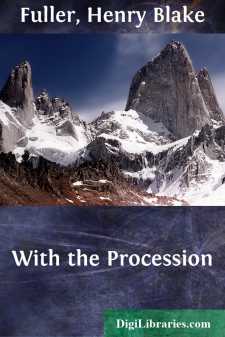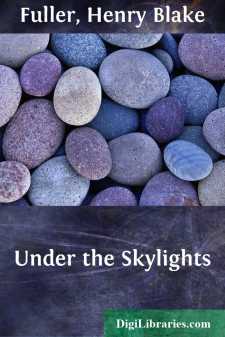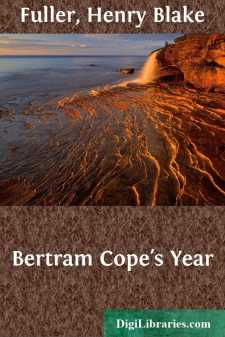Categories
- Antiques & Collectibles 13
- Architecture 36
- Art 48
- Bibles 22
- Biography & Autobiography 813
- Body, Mind & Spirit 142
- Business & Economics 28
- Children's Books 16
- Children's Fiction 13
- Computers 4
- Cooking 94
- Crafts & Hobbies 4
- Drama 346
- Education 46
- Family & Relationships 57
- Fiction 11829
- Games 19
- Gardening 17
- Health & Fitness 34
- History 1377
- House & Home 1
- Humor 147
- Juvenile Fiction 1873
- Juvenile Nonfiction 202
- Language Arts & Disciplines 88
- Law 16
- Literary Collections 686
- Literary Criticism 179
- Mathematics 13
- Medical 41
- Music 40
- Nature 179
- Non-Classifiable 1768
- Performing Arts 7
- Periodicals 1453
- Philosophy 64
- Photography 2
- Poetry 896
- Political Science 203
- Psychology 42
- Reference 154
- Religion 513
- Science 126
- Self-Help 84
- Social Science 81
- Sports & Recreation 34
- Study Aids 3
- Technology & Engineering 59
- Transportation 23
- Travel 463
- True Crime 29
Henry Blake Fuller
Henry Blake Fuller (1857–1929) was an American novelist and short story writer known for his works that explored the social and cultural landscapes of Chicago. He is often regarded as one of the first realists in American literature, with notable works like "The Cliff-Dwellers" (1893) and "With the Procession" (1895), which depict the complexities of urban life. Fuller was also an early advocate for gay rights, subtly addressing homosexual themes in his novel "Bertram Cope's Year" (1919). Despite his significant contributions to American literature, Fuller struggled with recognition during his lifetime, but his work is now appreciated for its pioneering exploration of social realism and LGBTQ themes.
Author's Books:
Sort by:
I When old Mr. Marshall finally took to his bed, the household viewed this action with more surprise than sympathy, and with more impatience than surprise. It seemed like the breaking down of a machine whose trustworthiness had been hitherto infallible; his family were almost forced to the acknowledgement that he was but a mere human being after all. They had enjoyed a certain intimacy with him, in...
more...
I With the publication of his first book, This Weary World, Abner Joyce immediately took a place in literature. Or rather, he made it; the book was not like other books, and readers felt the field of fiction to be the richer by one very vital and authentic personality. This Weary World was grim and it was rugged, but it was sincere and it was significant. Abner's intense earnestness had left but...
more...
I In the year 1873— No, do not turn away from such an opening; I shall reach our own day within a paragraph or so. In the year 1873, then, Johnny McComas was perfectly willing to stand to one side while Raymond Prince, surrounded by several of the fellows, came down, in his own negligent and self-assured way, the main stairway of Grant's Private Academy. For Johnny was newer there; Johnny was...
more...
COPE AT A COLLEGE TEA What is a man's best age? Peter Ibbetson, entering dreamland with complete freedom to choose, chose twenty-eight, and kept there. But twenty-eight, for our present purpose, has a drawback: a man of that age, if endowed with ordinary gifts and responsive to ordinary opportunities, is undeniably—a man; whereas what we require here is something just a little short of that....
more...





